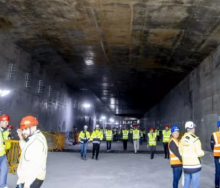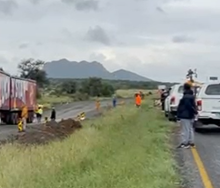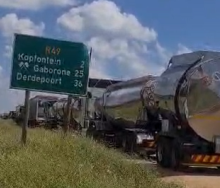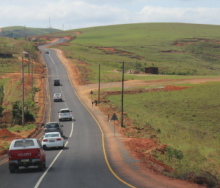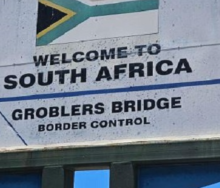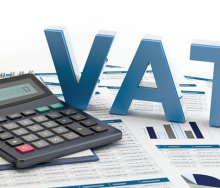Transnet SOC Ltd is making “considerable progress” implementing institutional reforms in line with the Freight Logistics Roadmap and National Treasury's guarantee conditions, the logistics entity announced on Friday.
These reforms include the restructuring of its rail business, the corporatisation of Transnet National Ports Authority (TNPA), and the disposal of its non-core assets.
The rail reform process, which entails the vertical separation of Transnet Freight Rail into a rail operating company and an infrastructure manager, is on track, Transnet said.
Transnet said it has actively participated in a consultation process facilitated by the Interim Rail Economic Regulatory Capacity since the publication of the draft railway network statement in March. This was in preparation for the publication of the final network statement and proposed tariff methodology that will see slots opening to third party train operators by September 30.
The rail operating company and infrastructure manager operating models and organisational designs will be finalised in the first quarter of 2025.
Transnet said it had also initiated the corporatisation of TNPA, which will culminate in the establishment of the authority as a wholly-owned subsidiary of Transnet as mandated in the National Ports Act. It said work is under way to complete its memorandum of incorporation and registration.
“The reform will enhance TNPA's regulatory oversight on terminal operators across its port network. The corporatisation will establish TNPA as a financially autonomous entity capable of generating its own revenue, and attracting increased investments to improve the efficiency and positioning of SA ports to enhance competitive maritime trade and create appropriate partnerships,” Transnet said.
Plans to dispose of its non-core property in line with the Treasury's guarantee conditions, are also “progressing well” and will generate cash and reduce holding costs, Transnet added. The board has approved a plan for the disposal of these assets, and the full list will be released later this financial year.
Transnet group chief executive Michelle Phillips said the initiatives are a demonstration of the entity's commitment to structural reforms in response to policy and regulation changes.
“In some cases, these changes entail entry of third parties in the rail and port networks, which is a necessary step to stimulate competition and address long-standing challenges such as under-investment,” Phillips said.
Meanwhile, Transnet continues to invest in infrastructure to boost mining export volumes. In collaboration with customers, independent technical assessments have been conducted on the iron ore and coal corridors.
“The teams are now hard at work to prioritise the improvement of the network on both these corridors to enable improved volume uplift of both iron ore and coal,” Transnet said.
Transnet exports manganese through various channels, primarily the Ports of Saldanha and Port Elizabeth, which together handle 15.5 million tonnes per annum (Mtpa).
The expansion of the Ngqura Manganese Export Terminal (NMET) is an undertaking to relocate and consolidate manganese exports from the bulk terminal at the Port of Port Elizabeth to the Port of Ngqura while expanding NMET's capacity to an initial 16Mtpa.
“Transnet will seek a private sector partner to assist in funding the design and construction of NMET. This partnership is crucial for improving operational efficiencies, business liquidity, and overall execution of logistics operations,” Transnet said.
The preferred bidder for the NMET project will be announced before the end of the 2025 calendar year.
TNPA has embarked on the KwaZulu-Natal Logistics Hub Programme, which includes the positioning of the Port of Richards Bay as a Liquified Natural Gas (LNG) import point.
“In early 2024, we announced Vopak Terminal Durban & Transnet Pipelines Consortium Venture as the preferred bidder to operate the LNG terminal. The consortium will design, develop, construct, finance, operate, and maintain the LNG terminal in the South Dunes Precinct at the Port of Richards Bay for a period of 25 years,” Transnet said.
Transnet will hold a minority share in this new business.
Transnet issued a tender in April 2023 for a private sector partner with experience in leasing capabilities and access to financial resources. The objective was for the company to partner with Transnet Engineering to establish a new company to develop opportunities for capital assets leasing, and to provide the emerging train operator market with access to leased rolling stock. However, Transnet had to cancel the tender transaction due to non-compliance and will reissue it by December.
Transnet added that it had last month appointed Grindrod South Africa as the preferred bidder to develop and operate a container handling facility at the Port of Richards Bay.
This development will enable an increase in the port's container handling capacity from 50 000 twenty-foot equivalent units (TEU) to 200 000 TEU per annum.
Phillips said these initiatives reinforced the entity's “commitment to proactively respond to the changing operational and policy environment”.
“A viable logistics industry is the lifeblood that runs through the veins of the South African economy. When we invest in infrastructure, we empower our customers to flourish in an increasingly competitive and dynamic business environment,” Phillips said.

